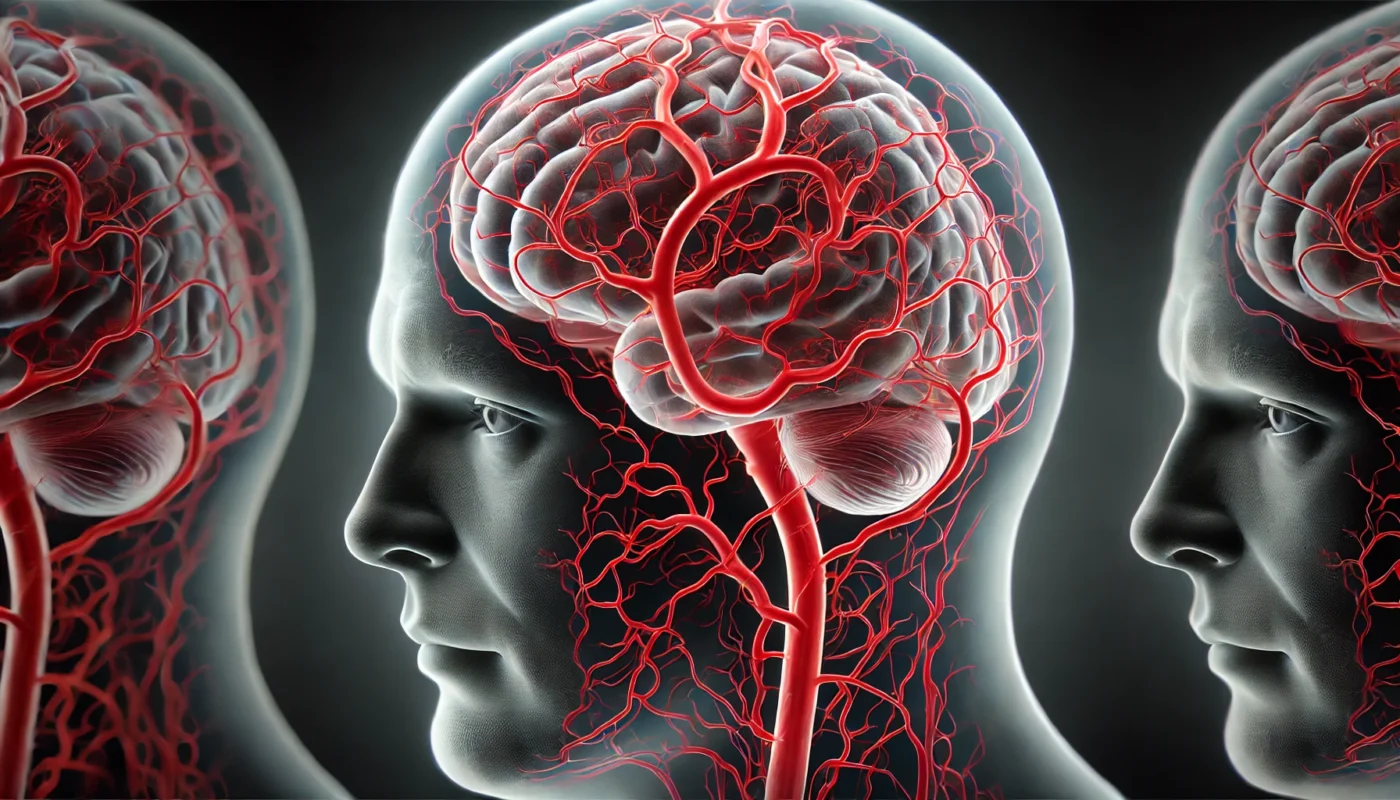Hypertension, or high blood pressure, affects nearly half of adults worldwide, as reported by the World Health Organization (WHO). While its effects on cardiovascular health are well-known, the impact of hypertension on cognitive function often goes unrecognized. Mounting evidence indicates that prolonged high blood pressure can lead to significant cognitive decline, affecting memory, decision-making, and overall brain health. This article serves as a guide to understanding the relationship between hypertension and cognitive function, identifying warning signs, and adopting strategies to address and mitigate cognitive decline.
You May Also Like: Zinc Picolinate and Sun Protection: Enhancing Skin Resilience
How Hypertension Affects Cognitive Function
The Connection Between Hypertension and the Brain
The brain relies on a constant, healthy supply of oxygenated blood to function effectively. Hypertension exerts stress on blood vessels, impairing this supply and leading to structural and functional changes in the brain. Over time, these changes can significantly affect cognitive abilities.
- Reduced Cerebral Blood Flow: Persistent high blood pressure damages the small vessels in the brain, reducing blood flow and depriving neurons of essential nutrients and oxygen.
- Vascular Damage: Hypertension accelerates the hardening and narrowing of blood vessels (atherosclerosis), leading to vascular insufficiency.
- Chronic Inflammation and Oxidative Stress: These processes damage neurons and contribute to neurodegeneration, particularly in regions associated with memory and executive functions.

Key Mechanisms of Hypertension-Related Cognitive Decline
- Small Vessel Disease and White Matter Lesions:
Hypertension is a leading cause of small vessel disease, which disrupts the white matter in the brain. White matter lesions are associated with slower information processing and reduced memory capacity. - Stroke and Microinfarctions:
Uncontrolled hypertension increases the risk of strokes and microinfarctions (tiny, undetectable strokes). These events can damage critical brain areas and lead to cognitive impairments. - Neurodegenerative Processes:
Chronic hypertension has been linked to the buildup of amyloid plaques and tau proteins, hallmark features of Alzheimer’s disease.
Recognizing Hypertension-Related Cognitive Decline
Early Warning Signs to Watch For
While cognitive decline often develops gradually, recognizing early signs can lead to timely interventions. Common symptoms include:
- Memory Loss: Difficulty recalling recent events or conversations.
- Reduced Attention Span: Trouble focusing or multitasking.
- Impaired Decision-Making: Difficulty planning or solving problems.
- Language Problems: Struggling to find the right words or follow conversations.
- Emotional Changes: Increased irritability, depression, or anxiety.
Differentiating Normal Aging from Cognitive Decline
Normal aging may involve mild forgetfulness or slower information processing, but it does not interfere with daily activities. In contrast, hypertension-related cognitive decline can significantly impact quality of life and independence.
- Mild Cognitive Impairment (MCI): A stage between normal aging and dementia, where noticeable cognitive changes occur without severe disruption to daily life.
- Dementia: A more advanced stage where cognitive impairments interfere with personal, social, and occupational functioning.
Diagnosing Cognitive Decline in Hypertensive Patients
Early diagnosis is essential for managing hypertension-related cognitive decline. Diagnosis typically involves a combination of:
- Cognitive Assessments: Standardized tests like the Mini-Mental State Examination (MMSE) evaluate memory, language, and problem-solving abilities.
- Imaging Studies: MRI and CT scans detect structural brain changes, such as white matter lesions and atrophy.
- Blood Pressure Monitoring: Consistent blood pressure tracking identifies patterns of poorly controlled hypertension.

Strategies for Addressing Hypertension-Related Cognitive Decline
1. Optimize Blood Pressure Control
Maintaining optimal blood pressure levels is the most effective way to reduce the risk of cognitive decline.
- Target Blood Pressure: According to the American Heart Association, a target of <130/80 mmHg is recommended for individuals with hypertension.
- Medications: Commonly prescribed antihypertensives include ACE inhibitors, ARBs, calcium channel blockers, and diuretics.
- Evidence: A study in Hypertension (2019) found that individuals with well-controlled hypertension were 30% less likely to experience cognitive decline than those with uncontrolled blood pressure.
2. Adopt a Heart-Healthy Diet
The same dietary principles that support cardiovascular health also protect the brain.
- DASH Diet: The Dietary Approaches to Stop Hypertension (DASH) diet emphasizes fruits, vegetables, whole grains, lean proteins, and low-fat dairy.
- Evidence: Research in Neurology (2017) showed that adherence to the DASH diet slowed cognitive decline in older adults.
- Limit Sodium: Excess sodium contributes to high blood pressure. Aim for <2,300 mg per day or <1,500 mg for individuals with hypertension.
3. Engage in Regular Physical Activity
Exercise improves cerebral blood flow and enhances brain plasticity, protecting against cognitive decline.
- Recommended Activity Levels: At least 150 minutes of moderate aerobic activity per week, such as brisk walking, swimming, or cycling.
- Evidence: A meta-analysis in The Journal of Alzheimer’s Disease (2018) found that regular exercise significantly improved cognitive function in individuals with hypertension.
4. Manage Stress and Sleep Quality
Chronic stress and poor sleep exacerbate hypertension and contribute to cognitive decline.
- Stress Reduction Techniques: Practices like mindfulness meditation, yoga, and deep breathing exercises can lower blood pressure and improve mental clarity.
- Sleep Apnea Treatment: Sleep apnea is common in hypertensive patients and increases the risk of cognitive decline. Treating sleep apnea with CPAP devices improves both blood pressure and cognitive function.
5. Incorporate Cognitive Training
Cognitive training exercises help maintain and improve brain function.
- Examples: Puzzles, memory games, and problem-solving activities.
- Evidence: A study in The Lancet (2017) reported that cognitive training programs improved memory and executive function in individuals at risk for dementia.

The Role of Supplements in Supporting Cognitive and Cardiovascular Health
Certain supplements can complement lifestyle changes and medications in managing hypertension-related cognitive decline. Below are five evidence-based options:
1. Ginkgo Biloba
Ginkgo biloba enhances cerebral blood flow and protects against age-related cognitive decline. A study in The Journal of Clinical Psychopharmacology (2019) reported improved memory and attention in older adults with mild cognitive impairment.
2. Magnesium Glycinate
Magnesium helps relax blood vessels and improves cerebral blood flow. A study in Magnesium Research (2016) showed that magnesium supplementation reduced systolic blood pressure by 5 mmHg and supported cognitive function.
3. Omega-3 Fatty Acids
Omega-3s reduce inflammation and oxidative stress, protecting neurons and blood vessels. A meta-analysis in Hypertension (2018) found that omega-3 supplementation improved both blood pressure and cognitive performance.
4. Coenzyme Q10 (CoQ10)
CoQ10 is a powerful antioxidant that supports mitochondrial function and reduces oxidative damage. Research in Hypertension Research (2007) showed that CoQ10 supplementation improved cognitive health in hypertensive patients.
5. Hibiscus Extract
Hibiscus promotes nitric oxide production, enhancing vascular relaxation and blood flow to the brain. Studies in The Journal of Nutrition (2010) demonstrated that hibiscus tea reduced systolic blood pressure and improved vascular health.
The Future of Hypertension and Cognitive Health
Emerging Therapies and Technologies
- Precision Medicine: Personalized treatment plans based on genetic and biomarker profiles aim to optimize hypertension and cognitive decline management.
- Brain Stimulation Techniques: Non-invasive methods like transcranial magnetic stimulation (TMS) show promise in improving cognitive function in hypertensive individuals.
- Digital Health Tools: Wearable devices and apps that monitor blood pressure and cognitive performance offer real-time insights and promote early intervention.

Conclusion
Hypertension poses a significant risk to cognitive health, contributing to memory loss, slower information processing, and increased vulnerability to dementia. Understanding the connection between high blood pressure and cognitive decline is crucial for early recognition and intervention. By optimizing blood pressure control, adopting a heart-healthy lifestyle, and incorporating evidence-based supplements, individuals can reduce their risk of hypertension-related cognitive decline and preserve brain health. With advancements in therapies and technologies, the future holds promise for more effective prevention and treatment strategies, empowering individuals to maintain cognitive vitality and improve their quality of life.
References
- Hypertension. (2019). Blood pressure control and its impact on cognitive function. Hypertension. Retrieved from https://www.ahajournals.org
- Neurology. (2017). The DASH diet and cognitive health: A longitudinal study. Neurology. Retrieved from https://www.neurology.org/journal/wnl
- The Journal of Alzheimer’s Disease. (2018). Exercise interventions for cognitive decline in hypertension. The Journal of Alzheimer’s Disease. Retrieved from https://www.j-alz.com
- Magnesium Research. (2016). The role of magnesium in hypertension and cognitive health. Magnesium Research. Retrieved from https://www.springer.com
- The Journal of Nutrition. (2010). Vascular benefits of hibiscus tea for hypertensive patients. The Journal of Nutrition. Retrieved from https://academic.oup.com
Key TERMS for this article:
Hypertension, Cognitive Decline, Brain Health, Cerebral Blood Flow, White Matter Lesions, Memory Loss, Nutritional Supplements
Relevant and useful TAGS for this article:
Hypertension, Cognitive Function, Brain Health, Blood Pressure Management, Memory Loss, Vascular Health, White Matter Lesions, Nutritional Support, Dementia Prevention, Holistic Health
Important Note: The information contained in this article is for general informational purposes only, and should not be construed as health or medical advice, nor is it intended to diagnose, prevent, treat, or cure any disease or health condition. Before embarking on any diet, fitness regimen, or program of nutritional supplementation, it is advisable to consult your healthcare professional in order to determine its safety and probable efficacy in terms of your individual state of health.
Regarding Nutritional Supplements Or Other Non-Prescription Health Products: If any nutritional supplements or other non-prescription health products are mentioned in the foregoing article, any claims or statements made about them have not been evaluated by the U.S. Food and Drug Administration, and such nutritional supplements or other health products are not intended to diagnose, treat, cure, or prevent any disease.

